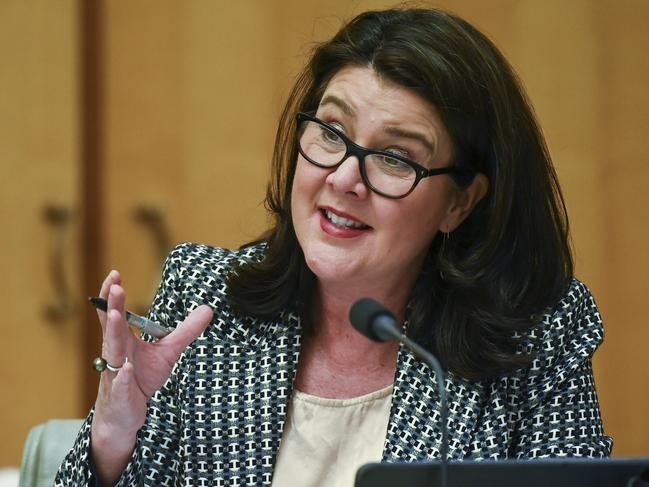Federal government urged to consider the cost to the taxpayer of unused, empty desks
A deal to allow public servants to work from home permanently has sparked backlash over the millions of dollars spent on state-of-the-art offices that are now sitting empty.
Victoria
Don't miss out on the headlines from Victoria. Followed categories will be added to My News.
Taxpayers did not invest millions of dollars on state-of-the-art office space for public servants for it to sit empty due to work from home demands, Opposition public service spokeswoman Jane Hume says.
The strong message comes after the Community and Public Sector Union revealed it had struck a deal with the Australian Public Service Commission that would allow federal public servants to work from their homes permanently.
Senator Hume said the spaces had been developed for workers to safely and securely develop public policy in the national interest.
“While we agree with the profession of flexible working arrangements in a modern workplace, the government needs to consider the balance between providing flexibility and the cost to the taxpayer of ongoing, unused, empty desks,” she said.

Workers will have the right to request flexible arrangements including uncapped days working from home, which the employer can only refuse after “genuinely trying” to reach an agreement.
A spokeswoman for the Acting Minister for the Public Service Jim Chalmers said: “The government is committed to being a model employer and is proposing that all APS employees will be able to make requests for flexible work”.
An Andrews government spokesperson said the decision would have no influence on the state’s workers, who are encouraged to come to the office three days a week.
The development comes as the Commonwealth Bank faces a Fair Work Commission fight, after the Financial Sector Union took issue with its May order for staff at home to from next week return to the office at least 50 per cent of the time.

Brad Popple, special counsel at Kingston Reid, said the Commonwealth Bank dispute would be a “case to watch” because there had been limited guidance from the Fair Work Commission, or the courts, about the extent employers were required to consulton changes to working from home arrangements.
Mr Popple said: “Ultimately, unless an employer has specific contractual or enterprise agreement terms that regulate rights to work from home, employers will generally be able to require employees to attend at the workplace, as directed, subject to exceptions that might need to be made on a case-by-case basis to deal with requests for flexible work or anti-discrimination obligations.”




